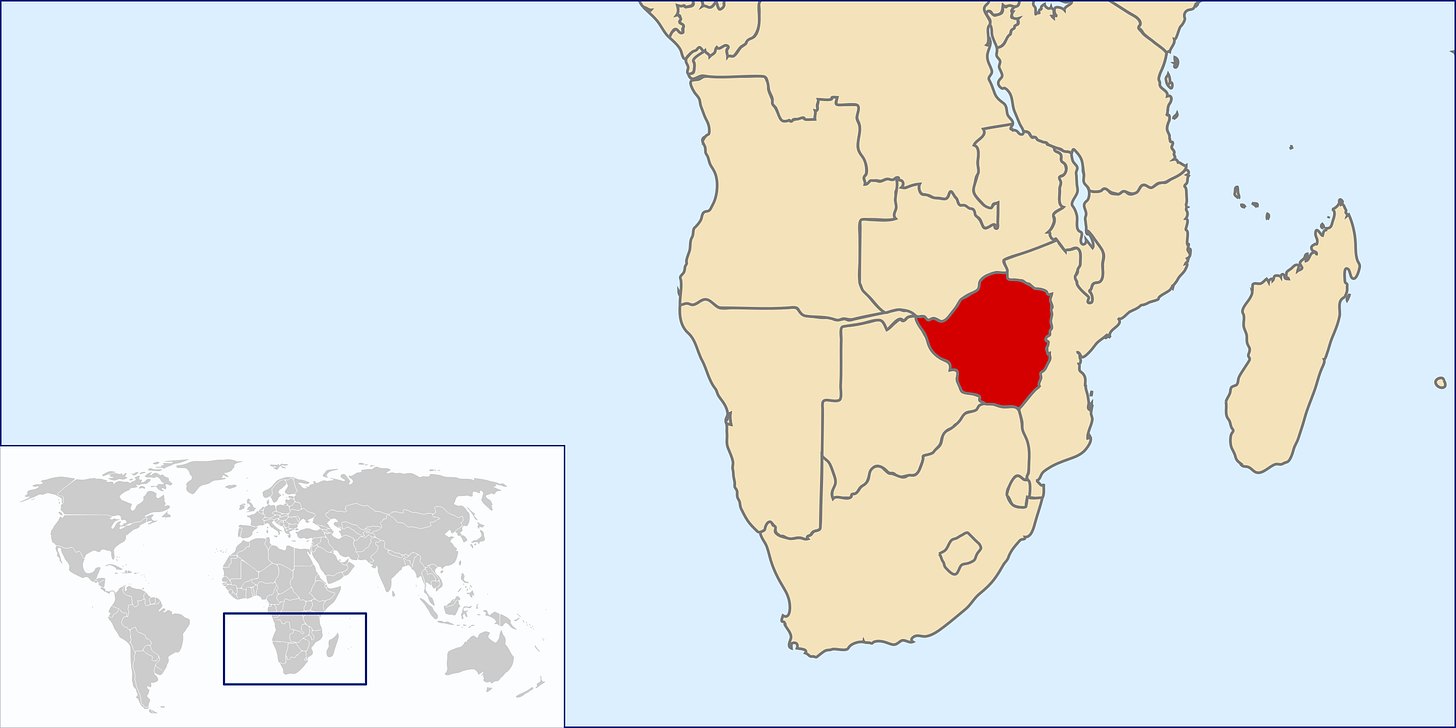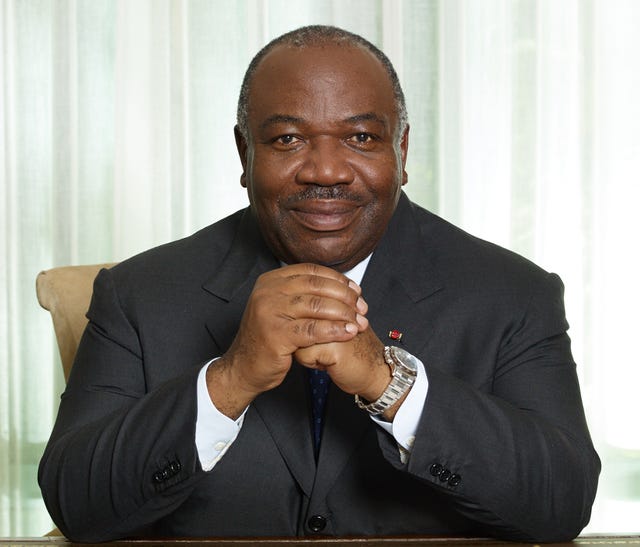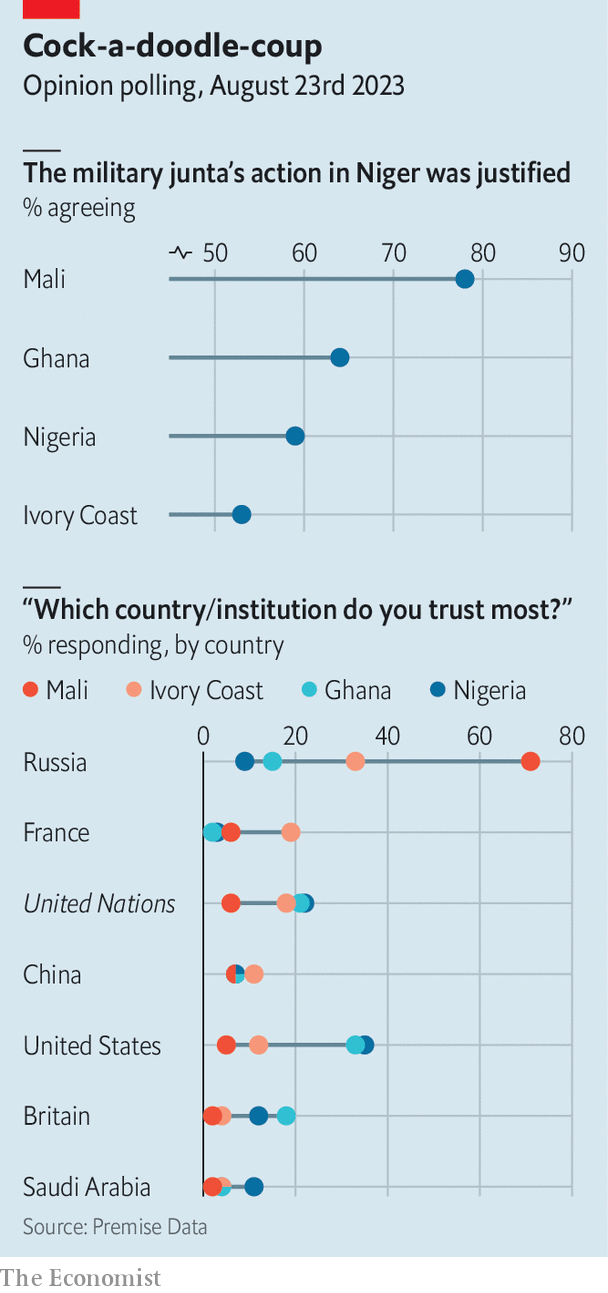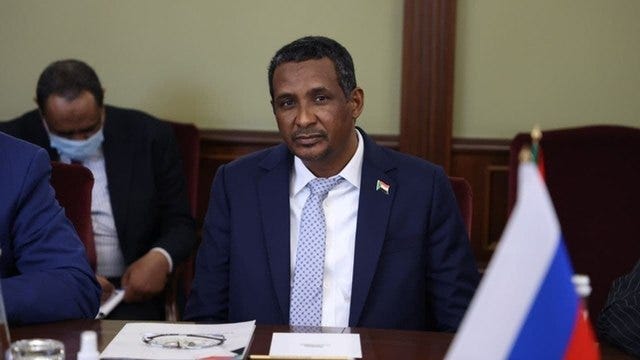🔅 Zimbabwe's Contested Results, Gabon Votes in a Tense Election
Plus, What do West African's Think of the Niger Coup? & Kenya's Nationwide Power Outage
Photo of the day: Bangui City Centre, Central African Republic
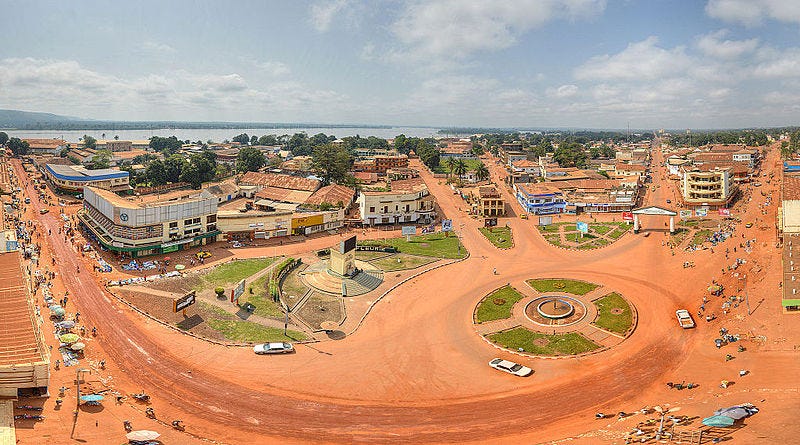
Markets:
🟢 Nigerian SE: 66,151.38 (+0.90%)
🟢 Johannesburg SE: 73,836.01 (+1.65%)
🔴 Ghana SE: 3,069.03 (-0.01%)
🔴 Nairobi SE: 99.17 (-0.21%)
🟢 US S&P 500: 4,418.03 (+0.28%)
🟢 Shanghai Composite: 3,098.64 (+1.13%)
Zambia Rates Up, Botswana Down | Zambia's trying to get a handle on inflation with a 50-basis-point hike of its interest rate to 10%, the highest it’s been in three years. Meanwhile, Botswana’s interest rate remains at a low 2.65%, as inflation’s just sitting pretty at 1.5%. Zambia’s making the tough decisions to keep inflation in check, while Botswana’s happily coasting.
*Data accurate as of the close of markets across the continent
Brief & Bright: Africa's Top Five Highlights
Zimbabwe's Contested Election: Fraud Allegations and Voter Intimidation
“It’s a blatant and gigantic fraud,” declared Zimbabwe’s main opposition leader, Nelson Chamisa, after President Emmerson Mnangagwa was declared the winner of the country’s election. His party, the Citizens Coalition for Change (CCC), claimed the election was “hastily assembled without proper verification.” But Mnangagwa insisted the elections were “run transparently, fairly in broad daylight”—and the results declared that he won with 52.6 per cent of the ballots. Observers reported an environment of voter intimidation, and the UN Secretary-General voiced concern about the “arrest of observers, reports of voter intimidation, threats of violence, harassment and coercion”. While some people in the streets of Harare said the results were no good, the president was quick to thank “various election observation missions who have been witnessing our electoral processes without bias”—and insisted that Zimbabwe was a “mature democracy.” Whether the CCC will challenge the outcome in court remains to be seen, but for now it looks like Mnangagwa is the winner.
Gabon Votes in a Tense Election
In Gabon, a tense election is underway. President Ali Bongo, who has held office since 2009 and is seeking a third term, is up against 18 challengers—including one who is backed by six other candidates. The election has been delayed due to voting issues, and the government has cut off internet access and imposed a curfew to prevent any “misbehaviour.” This is a much-anticipated test of support for Bongo, who has promised to create jobs, boost micro-loans, and cut school fees. However, his opponents say he has done too little in using the country's tremendous oil wealth to help those living in poverty and question his fitness to rule after a stroke in 2018. There have been allegations of fraud, and the opposition is worried about the post-election period, which has seen violent protests in the past. Ali Bongo took over power from his father in 2009, and the family has been in power for 56 years. Will this election finally be the one that breaks the Bongo dynasty? We’ll have to wait and see.
Actually, What Do West Africans Think of the Niger Coup?
We all know what the West thinks of Niger's recent coup, but what do West Africans actually think of it? A survey conducted by Premise Data has the answer. Turns out, most of them approve of it. Respondents in Ivory Coast, Ghana, Mali, and Nigeria were pretty much in agreement. And when it comes to the regional bloc Ecowas’s call to intervene militarily to put the ousted president back in power? That got a resounding “No thanks.” Fear of sparking a regional war was cited as the reason. As for sanctions against Niger? Malians aren’t into it, and neither are 58% of Ivorians. Oh, and did we mention that Russia’s kind of a big deal in West Africa? In Mali, for example, 71% of respondents said it was their country’s most trusted partner. Why? France’s past as the colonial ruler of Mali and Ivory Coast may have something to do with it. Read more on the results in The Economist.
When the Lights Go Out in Kenya

Well, this isn’t a great look. This weekend, the entire country was plunged into darkness when the power went out, leaving Nairobi’s main airport in chaos and citizens wondering what happened. The state-owned power company hasn’t explained exactly what caused the outage, but Kenyans on social media are understandably outraged that the airport didn’t have functioning back-up generators. As a result, the head of Kenya’s airport authority was sacked, and another senior official was demoted. There have also been chaotic scenes and long queues at the entrances to Kenya’s national parks after the digital payment system failed. No one knows who to blame, but when things go wrong in Kenya, people tend to blame corruption. The transport minister said that back-up generators for the airport were procured two years ago, but had yet to be commissioned for some reason.
The Sudanese Standoff: Could 'Sudan Reborn' be the Solution?
It’s been 20 weeks of Sudanese standoff with no end in sight. The RSF and the army are both pointing fingers; millions have been driven from their homes, and the UN has warned of a “humanitarian catastrophe of epic proportions”. But now the RSF is putting forward a potential solution: “Sudan Reborn”. It’s a vision of a future Sudanese state, with federal, multicultural rule, democratic elections, and a single army. RSF leader General Mohamed Hamdan Dagalo appears willing to negotiate, and army chief General Abdel Fattah al-Burhan is even taking a trip to Saudi Arabia and Egypt for talks. Pro-democracy politicians, however, are wary of any attempt to form a new government without civilian input. Several ceasefires between the two camps have previously been broken.
Food for Thought
“The king who shuts his eyes during famine in the land will soon see ancestors.”
— Nigerian Proverb.
Are we hitting the mark?
Enjoying Baobab's updates? Spread the joy and share us with friends and colleagues — we'd be thrilled to have them join!
Feedback or thoughts? Just hit reply. We're all ears!




